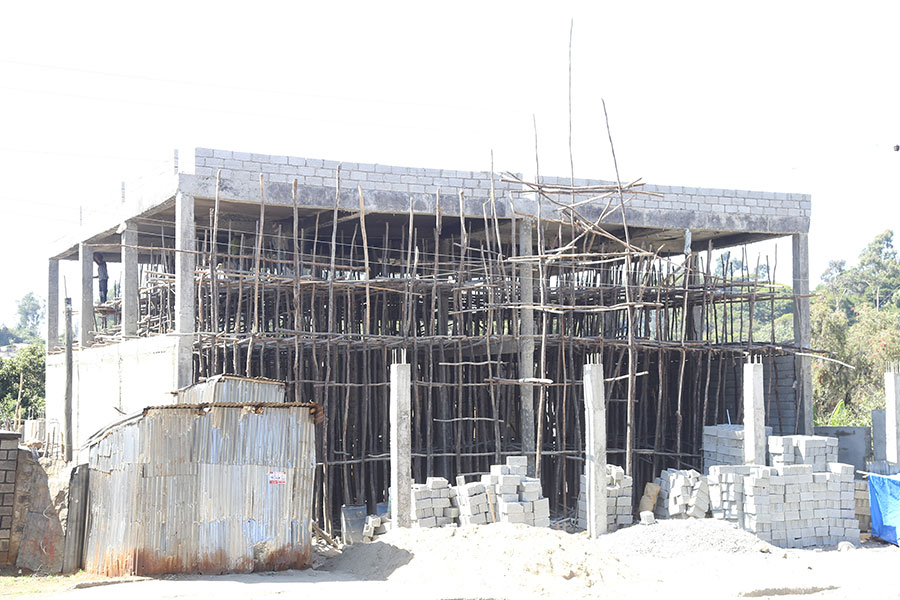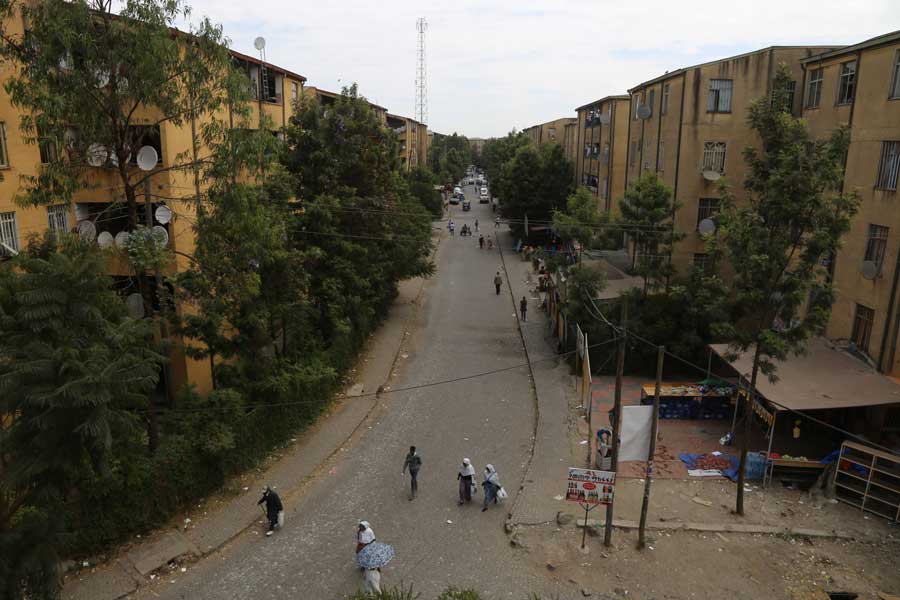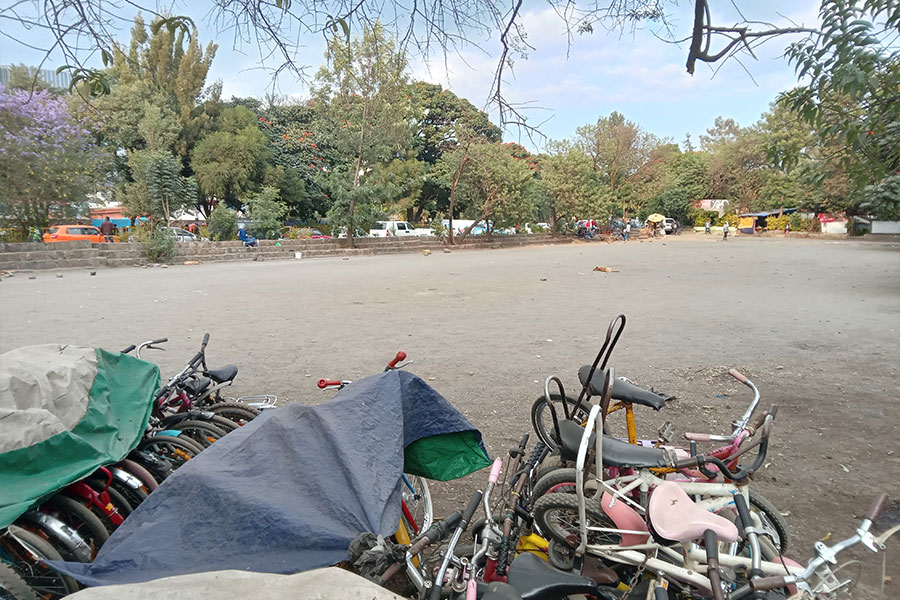
Fortune News | Dec 19,2018
Buildings in the capital foretell unified design standards pertaining to aesthetics such as paints adhering to the European RAL colour ranges as the Addis Abeba City Administration Construction Permit & Control Authority goes through a series of reforms to integrate dispersed regulations.
The new standards are oriented in compatibility with the 'Green Development' goal of the government which includes minimizing environmental pollution and brushing the skyline with an earthy hue.
Acquiring a building permit will require meeting design standards that take compatibility with zonal aesthetics, city landmarks, the number of floors, and infrastructure developments within the vicinity into account.
Kemal Jemal, director of the Building Control Directorate within the Authority claims colour standardization within the RAL system was seen as a necessity to keep up in line with the urbanization objective of the Ministry.
RAL is a colour scheme employed in Europe since the 1930s after the German National Committee for Delivery & Quality Assurance released a 40-colour standardization set.
Usman Mohammed, an architect with over 15 years of experience, argues that the development of an integrated urban skyline takes place on the design of the general city masterplan, approved structural designs and the local development plan.
He believes while the new regulations are comprehensive regarding the first two, more attention needs to be given to local development. He reasons comparison to other metropolitan cities requires a lot of work, despite the headway made regarding the city's master plan.
"We have a long way to go," said Usman.
Approval of plan agreements does entail meeting the colour standards of the new regulation reiterated. According to Kemal, close to 200 design plans have received the go-ahead under the new system.
The number of building permits given over the last two years has indicated an increase. While a mere 569 construction permits were handed out two years ago the Authority had issued about 7,000 permits averaging about 25 a day. It also renewed about 1300 building permits in the given period.
The new batch of reforms also requires a special permit to conduct construction after daylight along with a parallel set of requirements to conduct a demolition. The new standards applicable to all new building construction projects usher in a rigorous bureaucratic framework for obtaining a building permit and beginning construction. It classifies the buildings into three categories depending on the number of storeys and width of the construction area for approval of design plans of each.
The Authority headed by Setotaw Akale, former head of Addis Abeba Transport Bureau, issued the upgraded standards three months ago. It also has started using a digital portal for services like the renewal of permits.
The decision on whether or not a building permit is granted will be given within seven days except for real-estate developers which will require 21 days following the submission of design plans. Approved permits for a single-storey building will be of utility for up to a year while the maximum period of five years will be granted to large construction projects and public service providers such as schools and clinics.
According to Kemal, integration of different internal circulars and standardization of requirements was seen as paramount with frustrated customers piling up in the offices of the Authority.
A World Bank report from 2019 on the issuance of construction permits indicated the importance of instilling a coherent body of rules on building permits with countries like Nepal having automatic standard compliance checking mechanisms.
"Careful calibration between urban planning goals and architectural design is important," said Mubarak Nesru, a contractor with a background in architecture.
While he applauds the move by the Authority to standardize the aesthetic landscape of the capital's skyline, Mubarek questioned whether sufficient educated manpower exists to facilitate the necessary services.
The contractor believes creating awareness in prospective building owners about the new regulations might serve to be a cumbersome task.
PUBLISHED ON
Mar 04,2023 [ VOL
23 , NO
1192]

Fortune News | Dec 19,2018

Addis Fortune | Aug 09,2025

Viewpoints | Mar 02,2019

Fortune News | Jan 05,2019

Fortune News | Nov 02,2019

Agenda | Nov 09,2019

Radar | Dec 12,2023

Radar | Dec 07,2019

Commentaries | Apr 06,2019

Radar | Jun 22,2019

Dec 22 , 2024 . By TIZITA SHEWAFERAW
Charged with transforming colossal state-owned enterprises into modern and competitiv...

Aug 18 , 2024 . By AKSAH ITALO
Although predictable Yonas Zerihun's job in the ride-hailing service is not immune to...

Jul 28 , 2024 . By TIZITA SHEWAFERAW
Unhabitual, perhaps too many, Samuel Gebreyohannes, 38, used to occasionally enjoy a couple of beers at breakfast. However, he recently swit...

Jul 13 , 2024 . By AKSAH ITALO
Investors who rely on tractors, trucks, and field vehicles for commuting, transporting commodities, and f...

Oct 18 , 2025
The political establishment, notably the ruling party and its top brass, has become p...

Oct 11 , 2025
Ladislas Farago, a roving Associated Press (AP) correspondent, arrived in Ethiopia in...

Oct 4 , 2025
Eyob Tekalegn (PhD) had been in the Governor's chair for only weeks when, on Septembe...

Sep 27 , 2025
Four years into an experiment with “shock therapy” in education, the national moo...